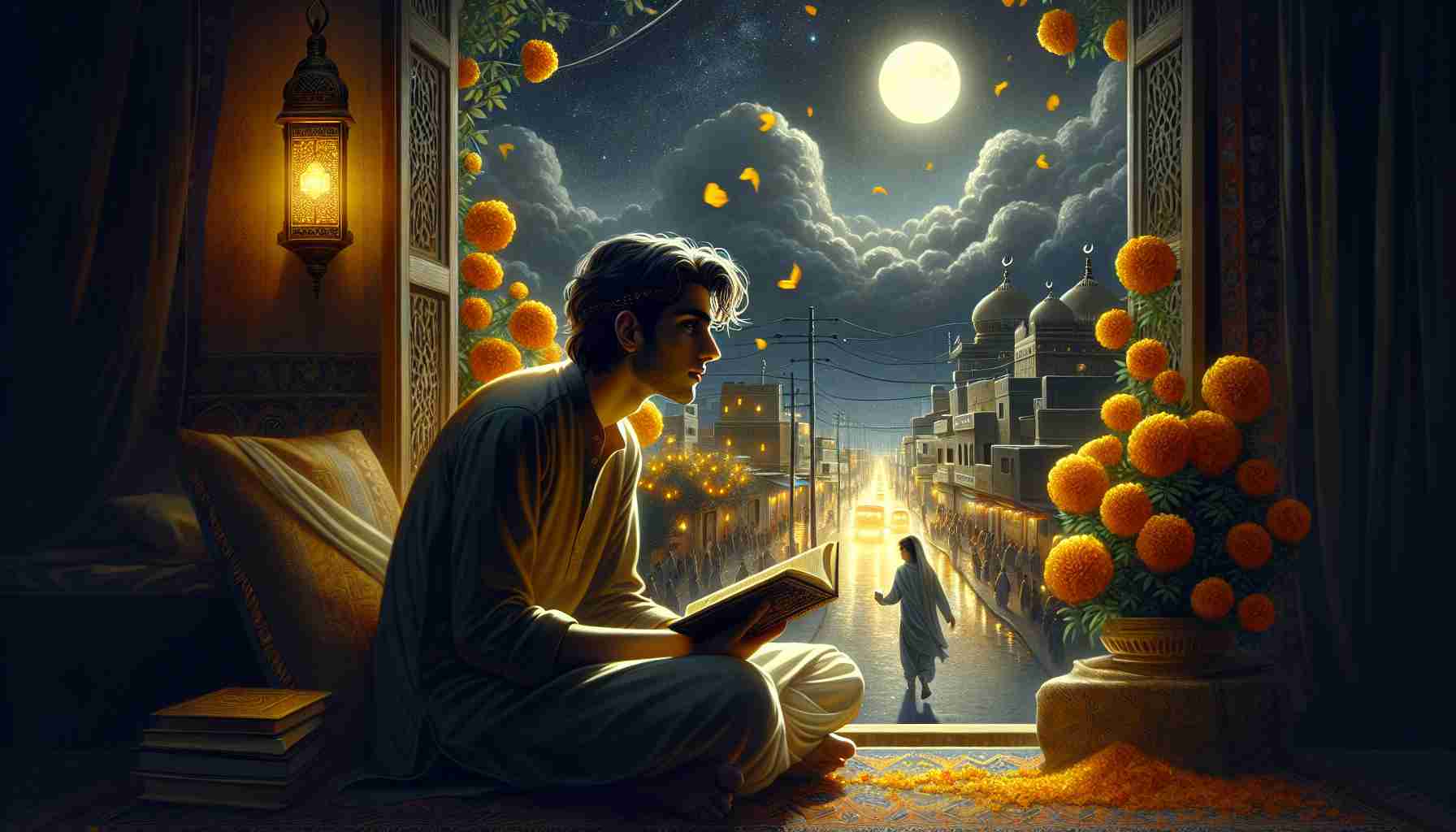

I was twenty-three when I left my small village in Uttarakhand to study in Mumbai. My name is Arav, the son of a temple pujari, and until then, my entire world had been nestled between the Himalayas and the sound of temple bells.
The city overwhelmed me. Cars and people moved like they were being chased; the noise never stopped. At night, I would lie awake in my tiny rented room, heart pounding, stomach tight, scared of everything—failure, loneliness, of not being enough. I didn’t even know what "enough" meant anymore.
One night, after a long, failed attempt at a job interview, I sat near the window, watching the sky. The moon was hidden, and I felt like I was too. Invisible. Trapped. I whispered without knowing who I was speaking to, “Why am I so afraid?”
That’s when I remembered something my father once read to me from the Bhagavad Gita—Chapter 2, Verse 47: “You have the right to work, but not to the results.” As a boy, I didn’t truly understand it, but now, sitting in my unrest, the words tasted different. Maybe my fear came from thinking I controlled everything.
The next morning, I skipped the train and walked. It was a longer path, but quieter. I stopped at a roadside shrine—one of those little stone corners with a murti of Lord Krishna, the blue-skinned divine who had guided Arjuna through the battlefield of the Mahabharata. Someone had offered fresh marigolds. I folded my hands in pranam—respect—and just stood there.
I thought of Arjuna, that mighty warrior who once stood paralyzed with fear before battle. And yet Krishna had said to him in the Gita, Chapter 2, Verse 22: “Just as a man gives up old clothes, the soul gives up old bodies.” Fear is like that too, I thought. Maybe it’s just something the mind wears when it forgets it's part of everything.
That’s when I saw her—a little girl, maybe six years old, placing a biscuit at the shrine. She had nothing, bare feet, torn dress. But she placed the offering with such care, even whispering a tiny prayer. She turned and grinned at me, tooth missing, joy full.
She didn’t have guarantees. But neither did I.
I walked back differently that day. Something had eased. Not everything made sense, but I didn’t expect it to. As the Isha Upanishad says, “The one who sees all beings in himself, and himself in all beings, never turns away from it.”
I started showing up. For interviews. For people. For myself. The fear didn’t leave completely, but I began to walk with it. Trusting the dance was still going—bigger than me, yet including me.
Now, whenever fear returns, I think of her—biscuit in hand, barefoot in devotion—and I remember:
Even when we’re afraid, the dance of the universe continues. And we are not dancing alone.
I was twenty-three when I left my small village in Uttarakhand to study in Mumbai. My name is Arav, the son of a temple pujari, and until then, my entire world had been nestled between the Himalayas and the sound of temple bells.
The city overwhelmed me. Cars and people moved like they were being chased; the noise never stopped. At night, I would lie awake in my tiny rented room, heart pounding, stomach tight, scared of everything—failure, loneliness, of not being enough. I didn’t even know what "enough" meant anymore.
One night, after a long, failed attempt at a job interview, I sat near the window, watching the sky. The moon was hidden, and I felt like I was too. Invisible. Trapped. I whispered without knowing who I was speaking to, “Why am I so afraid?”
That’s when I remembered something my father once read to me from the Bhagavad Gita—Chapter 2, Verse 47: “You have the right to work, but not to the results.” As a boy, I didn’t truly understand it, but now, sitting in my unrest, the words tasted different. Maybe my fear came from thinking I controlled everything.
The next morning, I skipped the train and walked. It was a longer path, but quieter. I stopped at a roadside shrine—one of those little stone corners with a murti of Lord Krishna, the blue-skinned divine who had guided Arjuna through the battlefield of the Mahabharata. Someone had offered fresh marigolds. I folded my hands in pranam—respect—and just stood there.
I thought of Arjuna, that mighty warrior who once stood paralyzed with fear before battle. And yet Krishna had said to him in the Gita, Chapter 2, Verse 22: “Just as a man gives up old clothes, the soul gives up old bodies.” Fear is like that too, I thought. Maybe it’s just something the mind wears when it forgets it's part of everything.
That’s when I saw her—a little girl, maybe six years old, placing a biscuit at the shrine. She had nothing, bare feet, torn dress. But she placed the offering with such care, even whispering a tiny prayer. She turned and grinned at me, tooth missing, joy full.
She didn’t have guarantees. But neither did I.
I walked back differently that day. Something had eased. Not everything made sense, but I didn’t expect it to. As the Isha Upanishad says, “The one who sees all beings in himself, and himself in all beings, never turns away from it.”
I started showing up. For interviews. For people. For myself. The fear didn’t leave completely, but I began to walk with it. Trusting the dance was still going—bigger than me, yet including me.
Now, whenever fear returns, I think of her—biscuit in hand, barefoot in devotion—and I remember:
Even when we’re afraid, the dance of the universe continues. And we are not dancing alone.